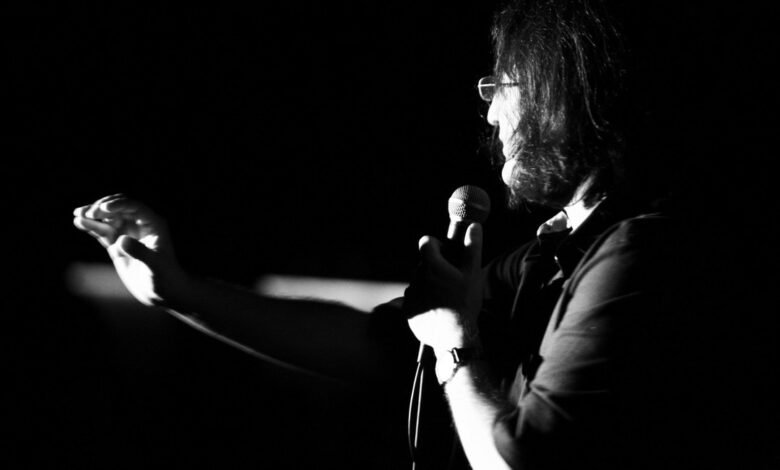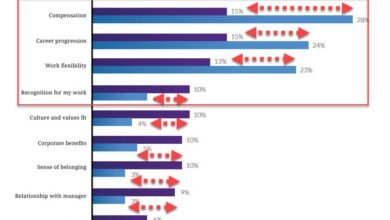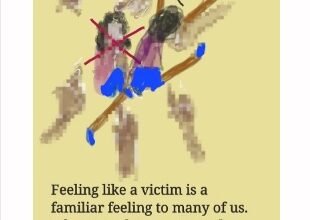
By | Papa CJ | Comedian • Executive Coach • Author • Oxford MBA • HBR Writer • papacj.com • WIT of the Week newsletter on LinkedIn, papacj.substack.com & papacj.medium.com • I uplift others & help them be the best version of themselves
I started doing comedy in October 2004 in London. The way progression worked in those days, you started with a 5 minute set. Then depending on the club, you moved to a 7, then a 10, then a 15 and then a 20. In most cases it was a jump straight from a 10 to a 20. I say jump but if you’re a new comedian, you will know that it is not a jump but a collossal leap. You could spend months of your life creating a ten minute set that works, impress a booker and then have them invite you to do a paid twenty at their club…when you have no more than 11 or 12 minutes of material that you know works! It’s a conundrum many a comedian have faced and will continue to face. Do you tell them that you’re not ready and risk that you may not be called back for years. Or do you accept and try and come up with a twenty by the time you hit their club – once again taking the risk that you might bomb and never be called back again.
Along with Patrick Monahan, in my early days in comedy, I was probably one of the hardest working comedians in the UK. I gigged every day. No, not almost every day, EVERY day. I remember one road trip to Manchester where I did six gigs in three nights – The Comedy Store, Frog and Bucket, XS Malarkey, Iguana Bar and a couple of other gigs that I forget. That was also the trip where the comedian who was driving us back to London was so stressed after his gig, he smoked a joint just after starting the drive down. Yes, in those days there was a risk of dying off stage as well.
You might think that six gigs in three days is not much to talk about. It probably isn’t in a lot of contexts. But when you’re a new act on a circuit with 500 new acts vying for the same 5 minute spot at a comedy club, I promise you it requires a serious amount of hustle to get those many dates in the diary. And when I say ‘hustle’ I mean a little bit of talent (or may just a little more than a little), a larger amount of grovelling and equally large amount of luck. I did 250 gigs in my first ten months. 700 in my first three years.
In those days, the way to get a gig was to open the Time Out Magazine, look at the Comedy section and see which club was offering open spots. And of course to talk to other open micers. The out of town gigs were normally nicer gigs because you’d be the middle spot, doing up to 10 minutes, to a reasonably large crowd (anywhere up to 500 people), in exchange for driving the other acts up and down from London. Keep in mind, you weren’t getting paid at all, although the other comics would pitch in their share of petrol. However often you’d spend over 10 hours on the road to do a 7 minute spot. I remember driving all the way to York once, probably a 6-7 hour journey, to do a University gig. The comedian travelling with me was a deaf comedian. We reached there to find that the students had exams and only 3 people showed up for the gig. Oh and in case you’re wondering, we had been on the road for 7 hours, you bet your ass we still performed!
The London gigs on the other hand were a different breed of gig. You had no idea of the quality of the gig or the quantity of the audience. There were some rooms that were always nice. Like Downstairs at The King’s Head at Crouch End. A lovely gig but a pain to get to because it wasn’t really walking distance from a tube station. You had to call Peter on the landline on a weekeday between 10am and 12pm to book a spot. The room had low ceilings and a light that shone right above your head. At almost every gig I’ve ever done there, whether or not anyone has come and spoken to me about what they thought of the quality of my performance, one or more women have always come up to me after and asked me which shampoo I use. My hair isn’t that nice, it was the lights.
A lot of the other gigs were a lottery. There were at least 12-15 gigs within a fifteen minute walk from Leicester Square. Roddy Fraser had a gig in Soho, Mike Manera had a gig, the very suspect Inky Jones had a gig. Roddy’s was a nice room, Mike’s was occassionally nice and then once in a while you got four foreign tourists with a limited English vocabulary and 13 open micers in the room. Then of course you had Hils’ Amused Moose gigs, Big Night Out* (which had two gigs, one on in the basement and one on the first floor of the pub on Oxendon Street), The 99 Club run by James Woroniecki, a room run by David Mullholland which was tiny but always wonderful – these were some of the good ones that I can remember. I was once booked to do both gigs at Big Night Out in Leicester Square. It was a night where I learnt a valuable lesson. I first played the basement which I absolutely destroyed. It didn’t strike me at that time that as a performer, you build momentum over the course of a gig. At the start, if you’re an unknown, you need to win over the crowd. Once you do, they grant you the right to be a cocky little shit by the end. Not realising this, I walked off after destroying the basement to do the middle spot on the first floor. The adrenaline was pumping and I started my set to the new audience as a cocky little shit – without first proving that I was funny. They of course were having none of it and I died on my arse.
There were tons more gigs. These were the glory days when you were allowed to flyer in Leicester Square and there were comedy rooms ALL over London. ED Comedy run by Ron and Emma in Dulwich, the Monday gig on the boat run by Christian Knowles, Headliners Comedy Club run by Simon Randall in Chiswick in the West (Simon also runs the wonderful Ealing Comedy Festival), The Bearcat Comedy Club, another Monday night gig in East London at the end of the Piccadilly Line…the list was endless. Then of course there were rooms that were known to be tough to play – Up The Creek in the South East that was famous for being a very tough room to play (I did shared the stage with Flight of the Conchords when I did a spot there), The Pear Shaped in Fitzrovia (which marketed itself as ‘the second worst gig in London’) and Malcolm Hardee’s infamous Wibbly Wobbly Boat, a tough tough room, where I did my first ‘official’ gig.
As a new comic on the London circuit, there were three people you wanted to impress. First and foremost, Don Ward. Owner of The Comedy Store, the most prestigious comedy club in the UK and the hardest to get into. Getting a weekend at the Store announced your arrival as comedy royalty. I practically lived at the Store in my early days of comedy, watching as many acts as I possibly could. I still believe it is one of the best comedy clubs in the world. And the staff there were wonderful – right from Alex and Simon in the sound box to Kim and everyone else who worked at the bar and big Mark and Julian – the bouncers who worked the door.
The first time I went to The Comedy Store was on Monday the 25th of October 2004. My friend Pete was performing at The King Gong show and a few of us went to support. The King Gong is a show hosted by a professional comedian, where about 25 new comedians take the stage and their aim is to TRY and last 5 minutes. The audience is told that if they like the comedian they should clap and cheer and if they don’t they are welcome to heckle and boo. Three people in the audience are randomly given red cards and appointed judges. If they don’t like a comedian or feel the crowd don’t, they raise the red card and the comedian gets ‘gonged’ off. The host riles the crowd into a frenzy and the show begins. It is brutal. On average a comedian lasts ninetly seconds. I’ve never seen more than five comedians get through five minutes. It’s normally two or three. At the end, between the comedians who make it through 5 minutes, the audience cheers for the comedian they liked the most and that comedian is pronounced King of the Gong. The real prize however, other than every open micer on the circuit finding out who won, is that you get noticed by Don Ward, and if he thinks your material is half decent, you get invited to do a 5 minute open spot on a Thursday night on the early show. That honour doesn’t let you sleep all night because you want to call their office first thing in the morning and book a spot. Of course when you call Charlotte or Simon or Alex in the morning you realise that the next 5 minute spot on a Thursday is available only eight months later!
Now what I didn’t know when we went to see Pete, was that in the middle of the King Gong show, the MC asks the audience if anyone from the audience would like to give it a go. This happened during the first half of that show. And I thought, what the hell, I’m going to give this a go. I had been writing some jokes in preparation for my first official open spot, and I thought there really could be no downside. I still remember I knocked back two Jack Daniels, borrowed and volunteered to get on stage in the second half. I don’t remember how the time flew when I took the stage but I remember hearing the ‘Hallelujah’ soundtrack when I finished five minutes on stage…and if that wasn’t surprise enough, at the end of the night, I won!
The second person you wanted to impress was Geoff Whiting. He ran a comedy empire by the name of Mirth Control. I say ‘empire’ because at one point he was booking 111 rooms all over the country. One hundred and eleven! If he saw you and liked you, theoretically he could put you on stage every night of the week. Geoff himself MC-ed quite a few gigs so ideally you wanted to be on one of those so he could see you live. Geoff saw me for the first time at my third ever gig. It was at London Metropolitan University on Holloway Road. He was hosting the show and luckily for me, I did well. Over the next three years I did maybe 300 gigs for Mirth Control. The first money I got paid was also at one of his gigs. I wasn’t supposed to be paid. It was my 9th ever gig in a pub in a hole-in-the-wall village about 3 hours drive away from London. The pub owner liked my set and gave me a ten pound tip! After a while when I started doing well at most of the gigs I demanded that I start getting paid and not peforming for free every time. Eventually I did start getting paid and while the money was never great (I’m talking £40 to 75), I got something much more from the Mirth Control gigs. In the 3 years that I performed in the UK, I must have spent over 2000 hours in cars with over 500 comedians who had been doing comedy for 15-20 years. I saw how they prepared, I saw how they worked a room, I heard them analyse their performances afterwards and I begged them to see my set and give me feedback afterwards. That was Comedy University right there.
The third person, or people you wanted to impress, were the people who ran a chain of clubs called Jongleurs. They ran clubs across the country and you got paid upwards of £150 per show for a 20 minute set. Also if they booked you for a weekend, you had hit the jackpot. That meant a gig on Thursday, one on Friday, one on Saturday and one on Sunday. Some clubs had two gigs on Saturdays and if I remember correctly, Leeds may even have had two gigs on a Friday. In comedy terms, that was a LOT of money. And they gave you a hotel room for the weekend. Far from a glamorous hotel but a hotel nonetheless. But if you got in with Jongleurs, you could make a living doing stand-up. Of course I use the word ‘living’ very loosely, but in comedy terms, it was actually money. Where’s the catch you ask. Well here it is. What Jongleurs wanted more than anything was an act that was reliable i.e. would consistently deliver a solid performance. However, Jongleurs gigs were not easy to play. Some of the rooms were lovely but some were not. The format of most nights were this. MC at the top, act one, MC for five mins, act two, interval. Then the MC again, open spot or middle act, MC for five minutes and then the headliner. Then, and this is why it was a tough gig, they’d take away all the chairs and it’d become a DJ and a disco night. What this meant was, that very often you’d get people who hadn’t come for comedy. They’d come to get shitfaced with alcohol and dance and try and get laid afterwards. So you’d get a bunch of hen nights and stag dos who were not interested in listening to the comedy at all. And even if they were to start with, they would get so drunk they had the attention span of amoeba. And these were rooms where you had hecklers – both coherent and incoherent. What this meant was that as a comedian, you had to be able to do two things. Firstly you had to be able to deliver a punchline every twenty seconds to hold their attention. And secondly you had to learn how to deal with hecklers and command the attention of a rough room. It was like taming a wild tiger. I remember a particularly rough night in Cardiff when the airconditioning wasn’t working, they had two stag nights in, four hen dos, one works do of 45 female prison warden and the world cup football playing on the television at the back of the room! It was a gig from hell. I struggled doing my spot. In the break the bouncers kicked out the prison wardens for being too disruptive. The brilliant Jeff Innocent who was headlining, fifteen minutes through his set, stopped, put the microphone back in the stand and said ‘You guys aren’t worth it’ and walked off stage.
I did my first 5 minute open spot for Jongleurs in Camden in London in around June 2005. I had won the Gong show a few times in London by then, I sent them a video and they called me to do a spot. There were two people who handled booking for Jongleurs, Rosie and Donna. As luck would have it, Donna was in the room that night and saw me perform. Having done the Gong so many times and never having been gonged off, I was able to not only handle the boisterous crowd but also deliver a solid set. The next thing I know, they asked me to do a paid 15! Holy hell! I told Donna I didn’t have a 15 that I was confident I could deliver to a Jongleurs crowd and so the next time they gave me a paid 10! Nine months into comedy, a chain that could take years to break into, had started giving me paid work. I’m writing this note because just recently I heard that the Jongleurs chain has been shut down. But I’m incredibly grateful for the gigs they gave me during my time in London – even the shitty ones. Their gigs gave me money when there was none around, a thick skin when they kicked my arse and a lot of learning – not only by watching other comedians work those rooms but also by learning how to work those rooms myself. I played almost every single one of their clubs. The lovely Camden in London, the ‘this can go either way’ Battersea, the rowdy Bow in East London, the notorious Portsmouth, the ‘I don’t want to go back there again’ Cardiff, the wonderful room in Leeds and the clubs in Scotland – both Edinburgh and Glasgow. I’m probably missing a few. Nottingham I think and I can’t remember if they had one in Birmingham, but I have fond memories of playing the absolutely wonderful Glee Club in Birmingham.
From the little I understand of what is happening on the UK circuit right now, I believe that TV comedy is making it very hard on the live circuit. People are either not stepping out for live stand-up and if they do, they want to see the guys they’ve seen on TV. This is making it hard for new guys trying to get up the ranks. But then fortunately for them, they have the internet – a democracy where anyone with talent can get noticed immediately. I feel incredibly fortunate to have been on the UK circuit at a time when it was possible as a new act to gig every single day of the year. I’m incredibly grateful to all the promoters who gave me work, to all the comedians who kindly took the time to give me counsel, and to my wonderful manager and agent Brett who took a gamble on me. To Jongleurs (Maria, Rosie, Donna), The Comedy Store (Don, Charlotte, Alex, Simon, Simon and literally everybody there) and Mirth Control (Geoff and Jane) – thank you. Likewise to all those who supported me in my journey on the UK circuit – the lovely Julia Chamberlain, Off the Kerb and Avalon for some of those early gigs, Ian Wilson for putting me on The World Stands Up (my first TV gig in March 2005), Peter at Downstairs at the Kings Head and so many more people. Thank you.
Finally to all the acts in the early stages of their comedy careers, don’t forget to hustle i.e. work on your talent, put yourself out there and hope you get more than your fair share of luck so you have to do less than your fair share of grovelling – or hopefully none at all!
Republished with permission and originally published at Papa CJ’s LinkedIn






